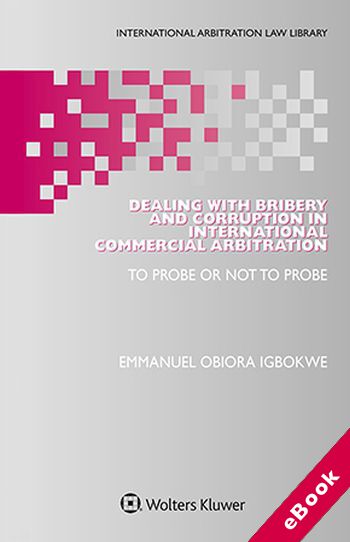
The device(s) you use to access the eBook content must be authorized with an Adobe ID before you download the product otherwise it will fail to register correctly.
For further information see https://www.wildy.com/ebook-formats
Once the order is confirmed an automated e-mail will be sent to you to allow you to download the eBook.
All eBooks are supplied firm sale and cannot be returned. If you believe there is a fault with your eBook then contact us on ebooks@wildy.com and we will help in resolving the issue. This does not affect your statutory rights.
The issue of bribery and corruption challenges the arbitrator’s allegiances. Although a plethora of legal scholarship clearly affirms this contention, an in-depth analysis of the important question of the authority and duty of international commercial arbitrators to investigate a suspicion or indication of bribery or corruption sua sponte – that is, on their own initiative – has been surprisingly lacking. This important book fills this gap, inter alia, by providing specific suggestions and establishing the sources of the powers and obligation of arbitral tribunals to sua sponte investigate bribery and corruption.
What’s in this book:
The book highlights the role of arbitrators in global efforts to combat transnational commercial bribery and corruption. Among others, the following critical issues are thoroughly investigated:
The study leans primarily on Swiss law, as Switzerland is one of the most important jurisdictions in international commercial arbitration and includes a comparative analysis of the relevant laws, jurisprudence, and doctrine of other major arbitration venues, particularly England, France, and Germany.
How this will help you:
The book will help readers understand the complex issue of corruption and how it manifests itself not only in the context of in international commercial arbitration but also on society in general, especially from the perspective of developing economies. Outside the field of arbitration, with its sound theoretical and practical analysis, the book also provides jurists, legal scholars, in-house counsel for companies doing transnational business and public officials with highly enlightening perspectives on the interaction between international commercial arbitration and public interests.